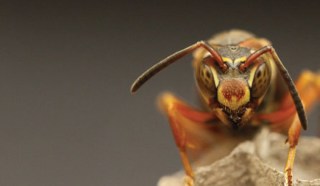
Life sciences writer Susan Milius has been writing about botany, zoology and ecology for Science News since the last millennium. She worked at diverse publications before breaking into science writing and editing. After stints on the staffs of The Scientist, Science, International Wildlife and United Press International, she joined Science News. Three of Susan's articles have been selected to appear in editions of The Best American Science Writing.

Trustworthy journalism comes at a price.
Scientists and journalists share a core belief in questioning, observing and verifying to reach the truth. Science News reports on crucial research and discovery across science disciplines. We need your financial support to make it happen – every contribution makes a difference.
All Stories by Susan Milius
-
 Life
LifeExtensive bird family tree rewrites some history
Unexpected pattern of evolution found across hemispheres.
-
 Paleontology
PaleontologyEarliest primate had tree-climber ankles
A creature known only from fossils of its teeth gets some more parts.
-
 Life
LifeHind wings gave four-winged dino flight control
Much-debated rear wings could have given Microraptor extra help in airborne maneuvers.
-
 Life
LifePulsing blob makes memories sans brain
Slime molds create a GPS navigation system based on their own gooey trails.
-

-
 Animals
AnimalsRight eye required for finding Mrs. Right
Finches flirt unwisely if they can only use their left eyes.
-
 Life
LifeVampire squid no Gordon Gekko
Recently equated with greedy financiers, Vampyroteuthis infernalis is not really all that rapacious.
-
 Life
LifeBirds catching malaria in Alaska
The mosquito-spread disease may be transmitted north of the Arctic Circle as climate shifts.
-
 Animals
AnimalsFace Smarts
Macaques, sheep and even wasps may join people as masters at facial recognition.
-
 Life
LifeKiller whale mama’s boys live longer
Survival benefits may explain females’ extended life span following menopause.
-

-
 Life
LifeInternational Congress of Neuroethology, College Park, Md., August 5–10
Dung beetle gaits and the whine of a mosquito's flight